She stays focused and smashes ceilings
她保持专注并打破天花板 Tā bǎochí zhuānzhù bìng dǎpò tiānhuābǎn (continue here 继续点击此处 )
French : Elle reste concentrée et brise les plafonds ( continue here /continuer cliquez ici )
Poh Li San: She stays focused and smashes ceilings, to pursue her dream. This is Sarah Pang. She's our national tennis player. And represents Singapore 🇸🇬 on the 'WTA' (Women's Tennis Association)
Sarah Pang : - Thank you for having me, Li San.
Poh Li San: How did you get into tennis?
Sarah Pang : I got into tennis 17 years ago. My dad encouraged me to pick up the sport. He said, "Sarah I'll let you play professional sport if you choose golf or tennis". I chose tennis. Tennis has been awesome. It's been a really good journey.
Poh Li San: At what age did you start?
Sarah Pang : I started at the age where many players retire. I started at 19. Considered a late start. Super late start. I mean, everyone was telling me I was crazy, so I knew once I picked up the racket, the goal was to play professional one day.
Poh Li San: Describe tennis in 3 words.
Sarah Pang : Mental , Tenacious, Exhilarating.
Poh Li San: Sarah, what's your daily routine?
Sarah Pang : 12 to 15 hours a day, on the tennis court, sometimes at 6:45 am or 7 am. We have two to three practices. In between that, sometimes, you have to work in the physio. Your osteo, your rehab and then for me, the other very big and important part is working on my fundraising. To raise for funding, just so I can keep training. (Support financially here TenniswithSarah on Her WTA Journey)
Poh Li San: How did you feel when you represented Singapore?
Sarah Pang : You feel very proud, like almost chest-thumping-chimpanzee-hounding, sort of proud. It's definitely a privilege. And it's something that I don't take lightly.
Poh Li San: Anything you want to share with people?
Sarah Pang : It doesn't matter how you start. It doesn't matter how poor or disadvantaged. If there's a will, you can really find a way. And in that same vein, I encourage a lot of Singaporeans to support our athletes.
Poh Li San: People don't see all the hard work and struggles, and the efforts that the athletes put in.
Sarah Pang : They see maybe a bronze medal. And they'd go, "Oh, she didn't win a gold". And that's a real shame. I speak collectively , all of us feel so proud when we step out.
Poh Li San: Yes.
Sarah Pang : I think the most important thing about playing professional tennis is Heart ❤️. How much heart you have in the things that you do. Just because the journey is such a long one, you have to really love what you do. Otherwise, it's just not sustainable. Can I just say something? Teaching a forehand technique in 15 minutes probably, which is what we're going for is a phenomenal task. So, Li San is doing pretty good.
Poh Li San: See, I'm sweating buckets already.
Sarah Pang : She is. It was very nice to see once you understood the instruction, you could replicate it and hit the ball.
Poh Li San: I'm quite happy that I managed to hit a few. Thanks for your tips and coaching.
Sarah Pang : You're most welcome.
Poh Li San: People think it's simple to play tennis. But, I don't think it's that easy at all. You need to have really good ball sense. And good hand-eye coordination.
Sarah Pang : That is true, the ball comes very fast indeed. But I still think it is very possible to play tennis at a recreational level. It's very accessible. And it's so enjoyable, it's awesome.
Poh Li San: If there's any sport you'd like to see, please let me know. If not, see you next Wednesday.
SARAH PANG : No one talks about how messy the healing process with the Lord can feel.
It's not instagrammable praying journals and coffee. It's the incomfortable journey of letting God show you the lies that are driving the patterns of your life. It's cooperating with Him as He pulls out unhealthy roots that are keeping you trapped. It's believing He is with you as you grieve over what He wants you to let go of.
The deeper I delve in this, I'm realising it's not as much about hitting a million balls, as much it is learning a life of obedience, yield and flow to the Spirit. It's not always easy, but it ALWAYS worth it.
“He’s our God outside of time”: How Sarah Pang made WTA rankings in two weeks
God
outside
of time”:
How Sarah
Pang made
WTA
rankings
in
two
weeks
by Tan Huey Ying
September 20, 2019,
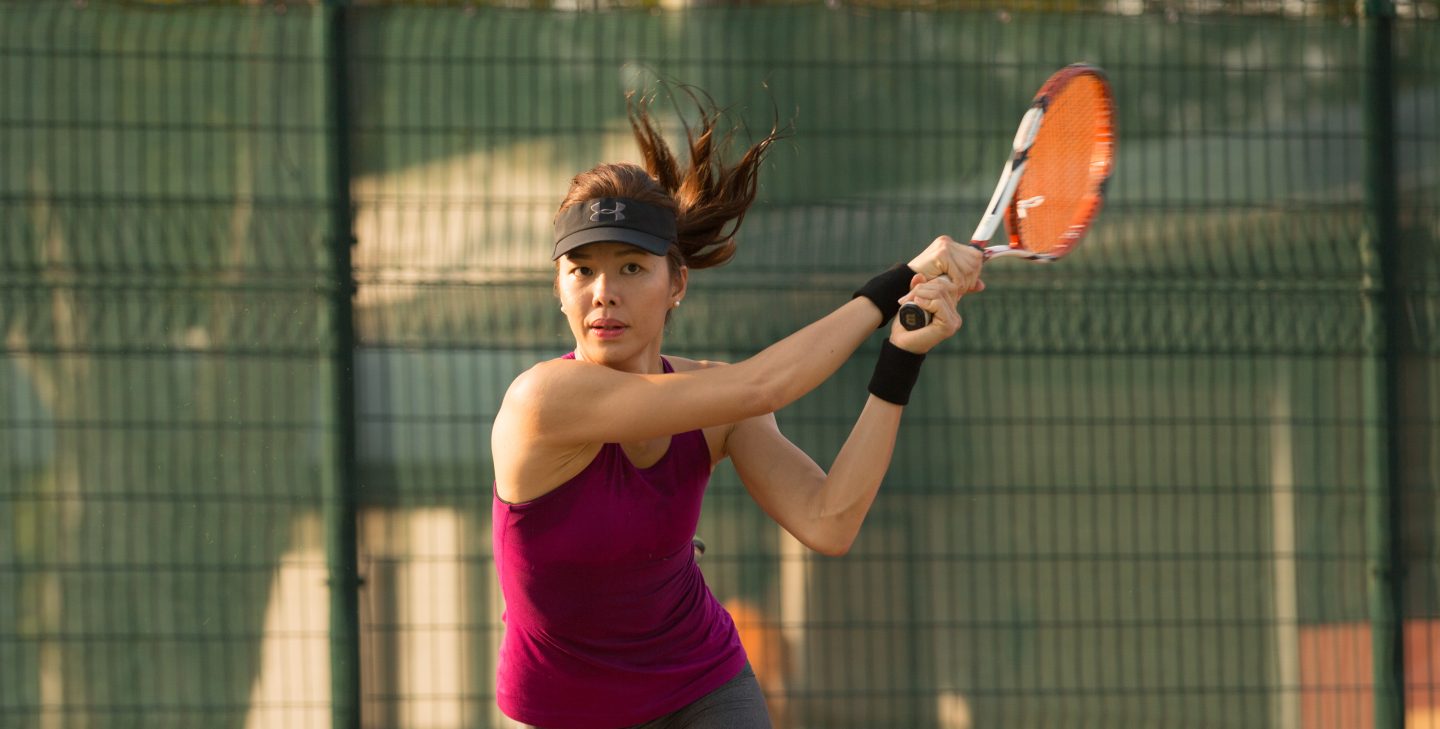
Sarah Pang, 34, is the eighth Singaporean to achieve a Women's Tennis Association (WTA) ranking in history, which she says is "a testimony in and of itself". All photos courtesy of Sarah Pang unless otherwise noted.
“The opportunity cost is
too high to take this as
a walk in the park,” says
professional tennis
player Sarah Pang. For
the feisty sportswoman
sitting across the table,
time is a precious
commodity – one that
she is highly attuned to.
At 34, she has finally
broken into the privileged
singles rankings of the
Women’s Tennis
Association (WTA) and
is one decisive step
closer to her dream of
playing in the prestigious
Grand Slam at the US
Open – a journey that
has led her to a deeper
understanding of the
“fullness of God” and His
love for her.
“It is a testimony in and
of itself,” says Pang, who
is currently ranked 1,259
and only the eighth
Singaporean with a WTA ranking. Just 1% of all
professional tennis
players manage to break
through onto WTA
rankings every year.
Grit and faith
It is her determination
and resilience that have
gotten her to where she
is today. A WTA-ranked
professional tennis
player since last month,
(October 2019) Pang quit
her job four years ago to
become a full-time player
on the professional
circuit.
“Do I really believe, ‘God, You are exactly as the Word says You are’?”
The obstacles she over-
came in her journey have
been well documented
by the mainstream
media:
A late start to the sport
and then to the
professional circuit
where many choose to
retire in their 30s.
Financial difficulties that
once left her with S$1.87
in her bank account.
Stresses and pressure
from travelling alone to
faraway places (Dijbouti,
anyone?) and even
competing in
tournaments without a
coach or support team.
Her valiant and
gutsy approach to these
challenges has brought
her far – such as seeking
funds through
crowdfunding and even
resorting to sharing the
cost of a coach with
several other players. But
beneath the grit
attributed to Pang is her
faith in God that has
been “a big part of her
journey”.
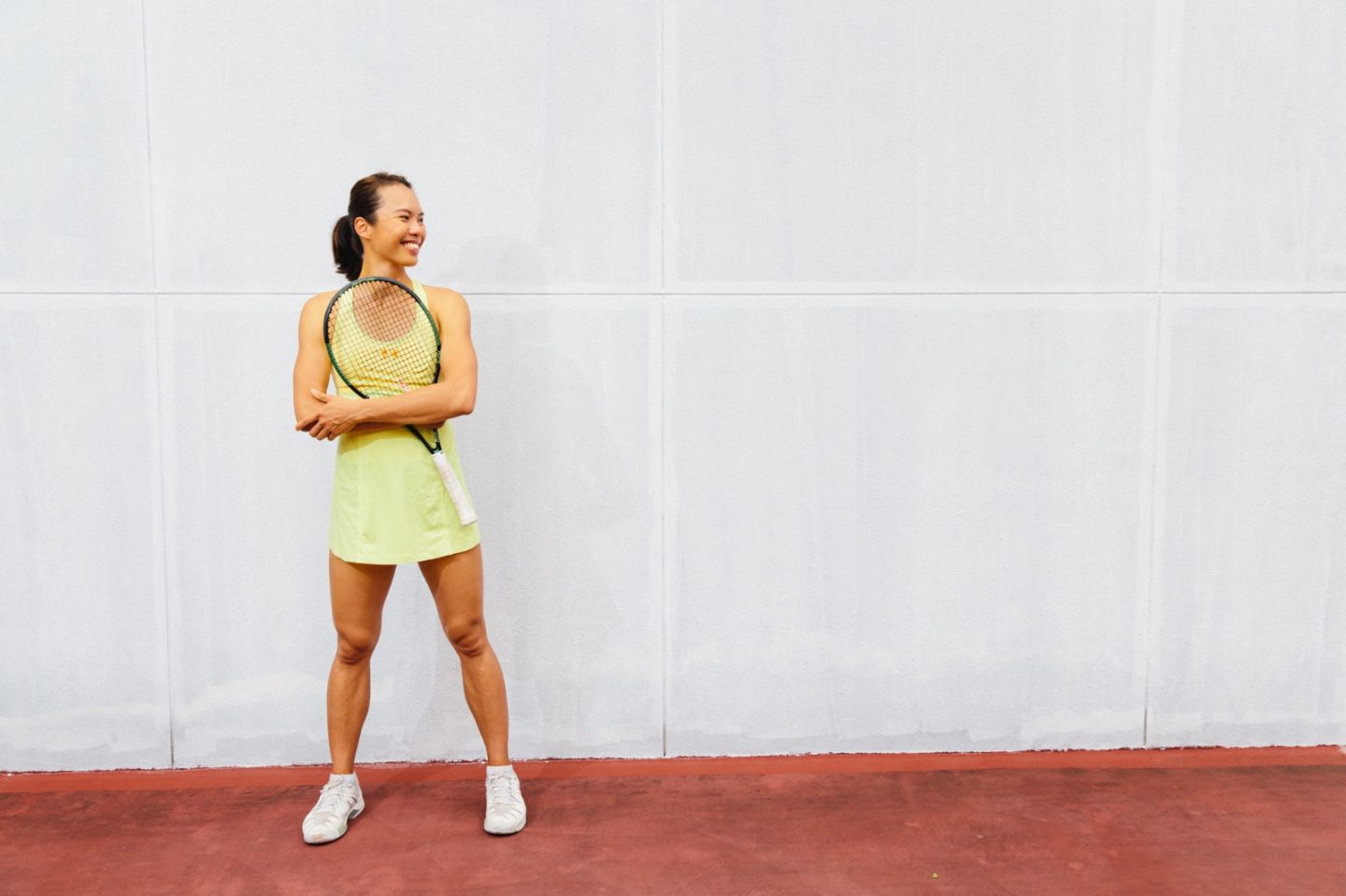
Pang picked up tennis at 19 years old and
started playing full time only at 29.
Photo courtesy of Sarah Pang. Photo by
Juliana Tan.
“I know we are meant to
be stewards, and to be
salt and light out there,
but through the course
of this, I’ve realised –
genuinely – more of
God’s love for me,” says
Sarah Pang.
“Sport is more
than just
physical”
To get a WTA ranking,
players have to win three
points on the
International Tennis
Federation World Tennis
Tour. To earn one point,
they have to win a match
in the main draw of a
US$15,000 event or
qualify to play in the
main draw of a
US$25,000 tournament.
At the end of 52 weeks,
the points expire and
players start again from
scratch. And in the last
two years, Pang has
come up one point short
– twice.
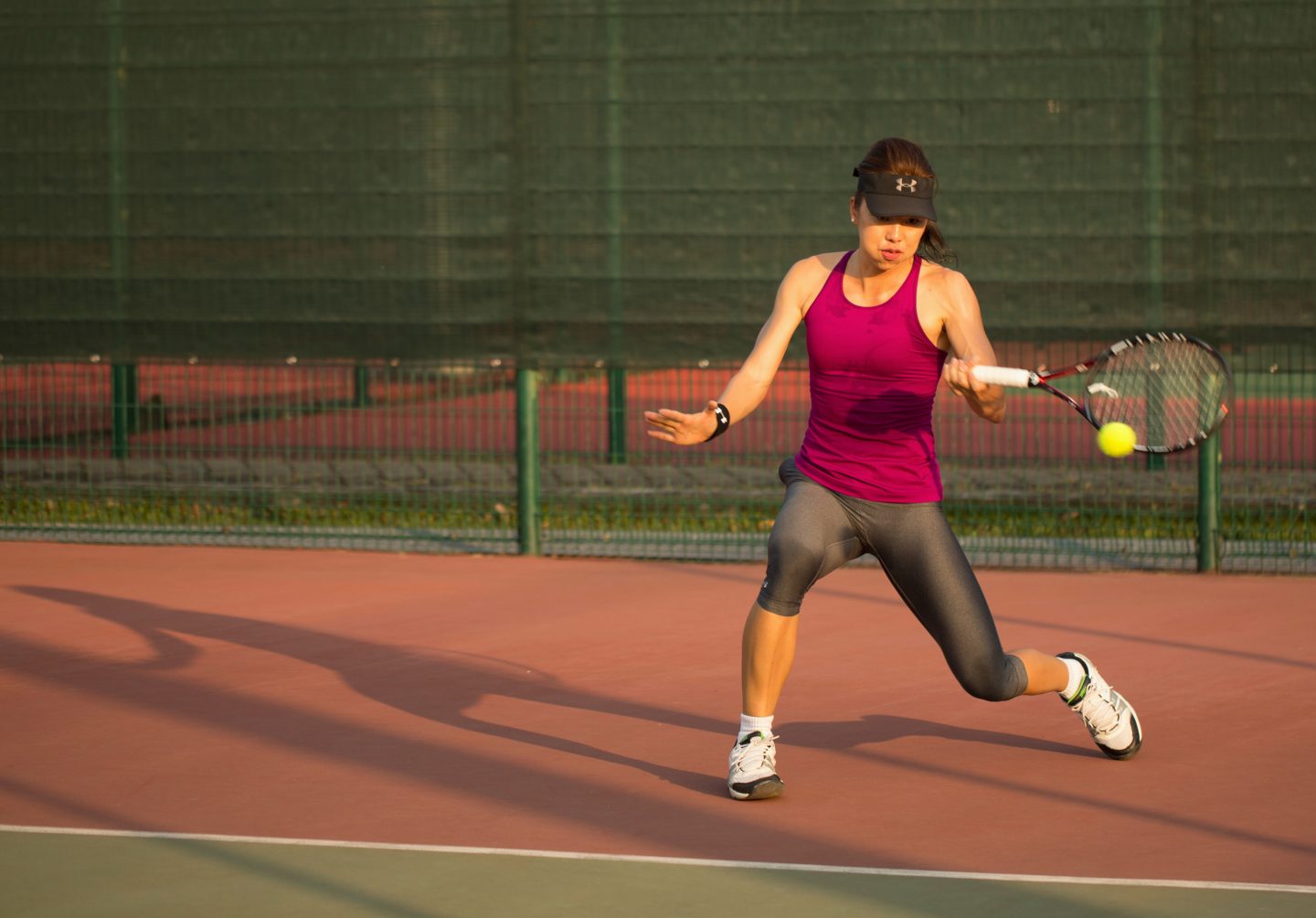
Pang funded herself for 10 years, working
multiple jobs to pay for her training, including
stints in Spain where she bartered 12- to
15-hour work shifts for training in kind. In
2015, Pang set up a crowdfunding campaign
and, today, is actively managing her own
fund-raising.
Pang says: “When we’re
pushed to moments like
that, what does the Word
say? Do I really believe,
‘God, You are exactly as
the Word says You are’?
“I realised I cannot
control the winning, but I
can control my attention
to process, my
faithfulness and
consistency.”
Sport is more than just
physical, it is spiritual.
And it’s a conundrum,
she adds, noting that
tennis and other sports
are extremely self-
focused and corporeal
in nature.
“Him turning up when He wants to turn up, and His timing is perfect.”
“Like, your body is your
only motto,” explains
Pang, who majored in
English Literature. “If I
break my arm, there’s no replacement! Things like:
‘Am I eating enough?
Am I sleeping enough?’
“It is that dialectic with
the outward open space
but also the inward
worship and fellowship
with Abba.”
“It’s very lonely out there,”
Pang says. “My coping
mechanism for that was
to come back to my
hotel room or my Airbnb
alone and play a sermon
and let God’s Word fill
the air.
“All these little things add
up; you can feel the
physical manifestation
of your needs. How do I
hold my mind to the
Word that says, ‘Take my
yoke upon you for it is
easy’ and live in that
fullness in spite of how
my senses are telling
me otherwise?” Pang
trails off.
“Senses that prevail and
assault our corporeal
being… Will we stand
on the Word?”
One point. Two.
Three!
In early 2018, Pang
managed to team up
with several other
players under one coach.
“We planned to make
ranking by the end of the
year (2019). A lot of it is
a combination of being
good enough and having
a tournament strategy,”
says Pang.
But God had a different
idea in store.
In December 2018, early
in the season, Pang got
her first point at a
US$15,000 tournament
in Dijbouti, a tiny nation
near the horn of Africa,
when she won her
match in the main draw.
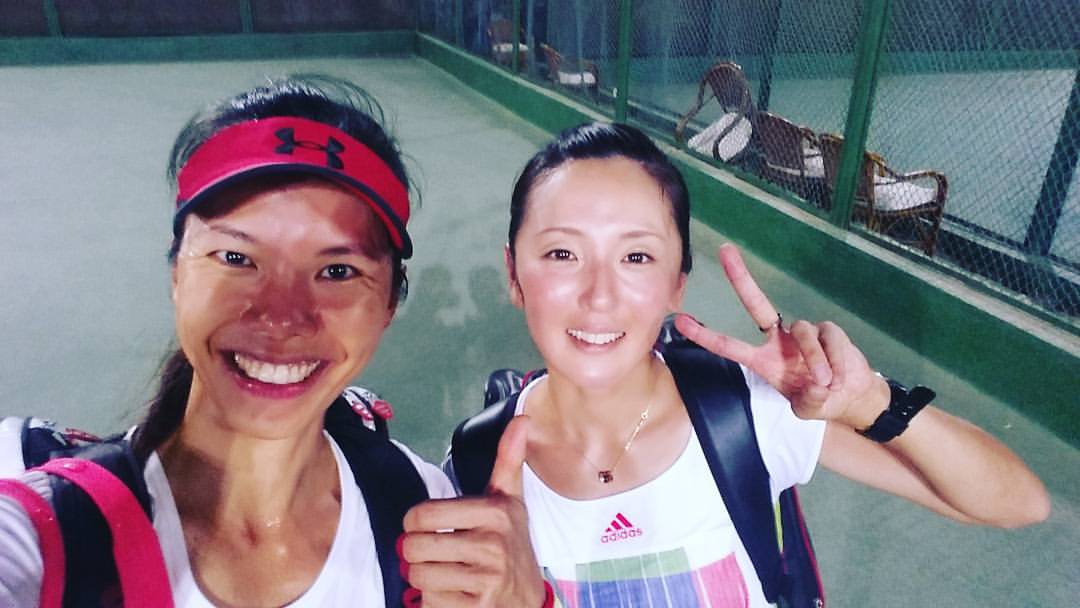
Pang (left) with her doubles partner,
Mitsumi Kawasaki, after their doubles match
in Egypt. This was Pang’s first WTA doubles
point in July 2016. That year, Pang fell one
point short of making both the WTA singles
and doubles ranking.
An unexpected second
point came in May when
Pang was given a
wildcard to play in a
US$25,000 event in
Singapore – it was like
being handed a point on
a “silver platter”. Pang
came back to Singapore,
leaving the team and
their training base in
China for the match.
After that event, however,
Pang’s coach urged her
to stay on and play in a
second US$25,000
event only one week
later.
Tired, Pang was reluctant.
“I just wanted to go back
to China and train,” she
recalls. But at the
behest of her coach,
Pang stayed.
“Because of the nature of this tennis journey, it’s a great chance to live and test the Word.”
Playing through the
qualifying rounds of the
tournament, Pang fell ill
on the day that she had
to play a match against
a tall, aggressive
Romanian player who
“screams like
Sharapova”.
“I didn’t even want to
know which round of
qualifier it was. I felt
fever, sore throat and all
the pi zui (mucus)
coming down,” recalls
Pang. “And I was ready
to give her the match.
Play easy, play light.”
So, in a long-sleeved
shirt, with cap and
visors, Pang hung on
and played.
She lost the first set, 6-1,
but won the second set,
1-6. In the last set, the
players went into tie-
break, where the match
is played to 10 points.
It suddenly occurred to
the feverish Pang that
this could be the last
qualifying round of the tournament. If she won,
she would get the third
point she needed for her
ranking!
If.
“I tried not to think of the
result. But it was very
tight.”
Pang eventually won the
set: 12-10.
“The really good
stuff”
Looking back at how she
made the rankings, Pang
shares: “To me, that was
God’s way of saying, ‘Eh,
you think one year? I can
do it in two weeks. I
show you.’ Then boom! I
made ranking!
“And it reminded me that
He’s our God outside
time
– He lives beyond that
space. It’s what
Ephesians talks about:
God is in absolute
control. Him turning up
when He wants to turn
up, and His timing is
perfect.”
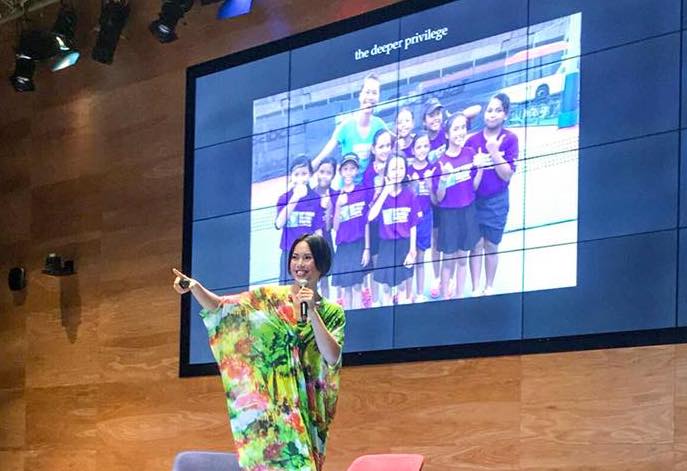
Doors to speak at corporate events have
started opening up for Pang. This year,
Pang was invited to speak at Google in
Singapore. It is a privilege that she values,
recognising and using the platform God has
given her to be His vessel to touch hearts
and lives.
Throughout this journey,
however, Pang is fully
aware of the unique
position she has been
placed in to speak of
God. On her
social media accounts,
Pang does not just
showcase her
achievements, or the
carefully curated
aspects of her life.
“My platform is really
meant to build a legacy
for our country and a
pathway for the next
generation. And I’m
plugging it so hard
because I know I can. I
know God has given me
the gifting and the ability
to do that. So I’ll just run
with it.
In the biggest challenge, to daily remind and envelope yourself with a sense of His love for you
“It’s something I’m trying
to use,” says Pang.
“Because we are called
into these ‘spaces’.
Because of the nature of
this tennis journey and
how naturally difficult it
is, it’s a great chance to
live and test the Word.
“It’s a matter of staying
the course and being
faithful. And in the
biggest challenge, to
daily remind and
envelope yourself with
a sense of His love
for you.”
In this interview with
Pang, the fire and drive
towards her goals is
evident. But what stands
out more clearly is the joy
that expresses itself as a
light in her eyes when
she talks about God –
who He is, what He has
done and what she has
learnt about Him by
being with Him.
As Pang puts it so aptly
in an Instagram Highlight
titled A fighting devotion:
“To have gone through
such a gamut
of travel, travails, and
tapestry
only to find at the end
—the “really good
stuff”— how
incredibly gentle
tender
and near
this Saviour is."
The Greatest Risk I’ve Ever Taken:
Sarah Pang.
Written by Sarah Pang
Sometimes the most poignant stories
are never told because not every
person wants to go through the pain
of chronicling how they felt at each
point in time. Some give into the pain,
while others embrace pain in its full
glory. Despite how lonely one feels,
the ability to talk about it, unites
people.
****
“Our education from the start has
taught us a certain range of emotions,
what to feel and what not to feel, and
how to feel the feelings we allow
ourselves to feel. All the rest is just
non-existent… This feeling only what
you allow yourself to feel at last kills
all capacity for feeling, and in the
higher emotional range you feel
nothing at all. This has come to pass in
our present century. The higher
emotions are strictly dead.” —
D.H. Lawrence, Apropos of Lady
Chatterley’s Lover
He looked at me under his slightly
slanted, drooping eyes. His hands
akimbo, leaning back deep into his
chair, splaying his legs in a wide
stance. The cold office had rarely
been a friendly place, and I could
feel the air starting to numb my
cheeks. Perhaps it was wrong of
me to have hoped for some warmth.
“You should stop trying to be elite,
Sarah,” He cut to the chase,
brushing aside the conversation,
driving home his point.
“Because if you were, you would have
been under our support system
already.”
As a Singaporean athlete who
constantly strives to be the best
version of myself for my country,
his words took me by surprise.
They stung hard, with painful
truths. I remember seeing a
small smile creep across his
face as he spread his hands.
To be honest, I mainly remember
how those words made me feel.
I am a Singaporean professional tennis
player. Some of you may have heard
my story. You’re probably expecting an
article about how choosing this career
path has been the riskiest thing I’ve
done to date — especially in
cosmopolitan, utilitarian, capitalist
Singapore.
But no. Not quite. I view my career
rather differently. Yes, players struggle
with funding, sponsors, with the way
people, systems, and bureaucracies
tend to view us through a hard dialectic
of pure wins and losses, criterion met
or profits gained. It is not easy to
navigate. But far from that, opening
myself up to this has not been my
biggest risk. Instead, this journey has
opened me up, to feel.
Feel. That is the riskiest thing.
It is easy to misunderstand the idea of
‘feel’, though. In our society, we tend to
prioritise logic over feeling — the latter
oft caricaturised as a floozy, nebulous,
unreliable guide. Having the propensity
to ‘feel’ for something has, over time in
a tide of culturally conservative norms,
become a sign of being ‘too emotional’.
In unspoken terms, it can be seen as
an underlying indicator of intellectual
weakness, even effeminacy.
I suspect, though, that society brushes
one’s capacity to feel with prejudice,
because we’re actually afraid of the
power true, honest, heartfelt feelings
can illicit in individuals. There is a role
that logic plays. But it is and should not
be one prized higher than the
importance feel plays in decision
making. Whether in work or relation-
ships, I find we tend to stop ourselves
from truly thinking about how we feel
about something. Or bite our tongues
from really expressing ourselves
because of the possibility of rejection.
Similarly in relationships, being honest,
means being vulnerable —and we often
shy from such chivalry because you
don’t know how the other party will
respond. Simply put, you don’t know
where that feeling will take you. So,
you would rather not risk it.
In tennis, it has been said a normal
individual will never come close to
experiencing the depth and range of
emotion that a competitive player
experiences in a single match. I’m not
sure how true that is, but it is true that
what we feel on court is cruelly intense
— and I think that comes with the
nature and sheer difficulty of this sport.
Tennis is fitness and strength, married
with the need for high degrees of
agility, coordination and flexibility.
Your body is constantly responding to
a moving ball, requiring you to control
three elements: vision, speed and feel
simultaneously. Both technically and
mentally, it is about being hard and soft
at the same time. Calm but fierce.
Relaxed but intense.
But here is the trick: To be calm you
have to feel calm; to be fierce, you
have to feel fierce. But what if you had
to be both? How do you deeply
assume both roles, and still operate
with peace within yourself? When I
practised this with my coach in
California, applying the two
concurrently got so mentally and
physically intense, smashing my
racquet felt like the only way to
quench the fire in my head and the
burn in my lungs. A lot of success in
tennis boils down to balancing the
mental aspect of the game — deeply
feeling intense emotions that come
out of a supposed failure or success
on court, and yet being able to control
them, in order to move on and do the
next right thing. The only way to
harness your feelings, is if you can
practise patience and a willingness
to understand yourself, first.
—
“It is depression!” He exclaimed, his
eyes widened as his voice went a pitch
higher in protest. We sat at a bar,
soaked in the evening sun in KL, and I
looked down at my napkin at the table,
the sides of my mouth upturned as I
grudgingly accepted the possibility.
“Well… I suppose it is.”
“Of course it is!” His protest, again,
rose strongly above the music blare.
“It’s a very real feeling, you know??”
Barely a few months ago, I had just
$1.87 in my bank account. Despite my
best efforts in working tirelessly over 8
months with a potential funding
partner, I was told at the very end that
they I did not meet their prerequisites
for support. Systems were yet to be in
place to seriously consider cases like
mine.
For some reason, when I got the news,
I cracked. It was somewhere between
feeling I had been led along for 8
months, matched against a real, deep
need for funding help, that things
started getting exponentially more
difficult. This KL friend too, had once
shared how he had been brought down
to RM4.32 in his bank account. It was
one of his most difficult seasons to
keep believing that things would turn,
and somehow, I needed someone who
could understand. I confided in him
with downcast eyes that when I
cracked, for the next few days,
I could not stop crying.
I hated it. I hated this lack of control. I
hated feeling such deep loneliness
and desperation — I could feel it
pulling me down and sticking to my
soul like septic glue. The tears would
come at will too. Fast, strong, heavy,
and on one particular occasion it got
so bad, I had to park myself under-
neath my block after practice, to let
everything out because I didn’t want
my parents to see me like that. These
weren’t little sniffles you could dab
away with a piece of tissue. These
were painful, gut wrenching,
soundless tears of deep frustration.
When was good enough, ever good
enough to warrant help?
Or just a little faith?
—
Kevin Hart the comedian recently
shared on a radio interview that he
once planned to be a stripper. He was
in college, money was dry, and out of
desperation he started getting outfits
and planning an actual stripping routine.
As crazy as it was, it took one of his
buddies to shake sense into him.
“Yo, what the hell you doing? Stupid.
You go out there and you take
your lumps!”
From that, he realised that it is not bad
to struggle. Human beings have a
tendency to want a quick fix, an easier
way of escape. There is shame
attached to struggle. Shame attached
to sitting underneath your HDB void
deck, bawling your eyes out with snot
streaming down your nose. What if a
neighbour sees you?
What if someone takes your picture?
As Hart says, “Go get your dumb ass
out there. Man, go struggle.” And
rightly so. The life lesson is that there
is no win in the quick route. There is
nothing wrong with grinding. There’s
nothing wrong with struggling. There
is nothing wrong with taking the longer
route and getting your hands dirty in
the process. Success is never a
fixation on instant gratification, nor on
keeping things neat, clean and
sanitised. With the dirt, comes the
lessons — and those are the real gems.
—
The path upward is never a stagnant
one, and neither is it a shameful one.
As painful and as strong a marker that
day under my block served, I knew that
that was exactly where I was supposed
to be. I was meant to feel the depth of
these feelings, to feel frustration stilt
the breath in my lungs, and understand
that it was okay to be there and to feel
helpless. It is especially in important
moments like this that we must take
responsibility to break out of this cycle,
and realise that contrary to how
depressed we can feel, we are never
alone. When you cannot move, you
need to humble yourself and send an
SOS out, tapping on a reservoir of love
and care of others to carry
you forward.
Over the next few weeks, a small group
of 11 friends banded together to send
me to the States to see my coach in
California. It was one of the hardest
things — sending that SOS signal out
for help — but it was hard because it
was a matter of getting over my
insecurities, to choose to be honest
and vulnerable. The first person I
texted was our Paralympic champ,
Theresa Goh.
“You are the first friend I am sending
this to.”
I typed, afraid and feeling deep
embarrassment, as tears welled in
my eyes.
“But I’m going to try because I really
want to keep competing and training.”
“Don’t cry, Sarah Pang.” TG shot back.
“Because of the person and kind of
friend you are, you will never have a
shortage of good people around you.”
—
And so because of these people —
these kind, good people — I had
access to see my coach whom I had
not seen for 5 months. Training
sessions were by no means easy,
but over three weeks, I felt like I was
slowly being put back together from
all the hurtful things that had
happened back home. I stayed with
a wonderful host who loved me
with great food, heart-to-heart
conversations, a non-judgemental
acceptance of who I was, and who I
could be. Bit by bit, I could feel hope
edging back into my heart. Slowly
but surely, over days, I came back
full circle to a conviction that I could
contribute, that impossibles were
possibles, edged with a belief that
we need to do it together.
Building great things, building deep
things, takes time — because there
will be trials that test over and again,
your belief in something, just by sheer
extenuating circumstances. But it is
only through that, only through letting
ourselves go through those
experiences, that we get the chance to
become tuned to what DH Lawrence
calls, is our “higher emotional range.”
Let us not be afraid to feel. Because
that is the only way to discover
ourselves, and in so knowing, find
deeper things in us that are built to be
unshakeable, in times of shaking.
Sometimes the most poignant
stories are never told because
not every person wants to go
through the pain of chronicling
how they felt at each point in
time. Some give into the pain,
while others embrace pain in
its full glory. Despite how
lonely one feels, the ability to
talk about it, unites people.
****
“Our education from the start
has taught us a certain range
of emotions, what to feel and
what not to feel, and how to
feel the feelings we allow
ourselves to feel. All the rest is
just non-existent… This feeling
only what you allow yourself
to feel at last kills all capacity
for feeling, and in the higher
emotional range you feel
nothing at all. This has come
to pass in our present century.
The higher emotions are
strictly dead.”
— D.H. Lawrence, Apropos of
Lady Chatterley’s Lover
He looked at me under his
slightly slanted, drooping eyes.
His hands akimbo, leaning
back deep into his chair,
splaying his legs in a wide
stance. The cold office had
rarely been a friendly place,
and I could feel the air starting
to numb my cheeks. Perhaps it
was wrong of me to have
hoped for some warmth.
“You should stop trying to be
elite, Sarah,” He cut to the
chase, brushing aside the
conversation, driving home
his point.
“Because if you were, you
would have been under our
support system already.”
As a Singaporean athlete who
constantly strives to be the
best version of myself for my
country, his words took me by
surprise. They stung hard,
with painful truths. I
remember seeing a small smile
creep across his face as he
spread his hands. To be honest,
I mainly remember how those
words made me feel.
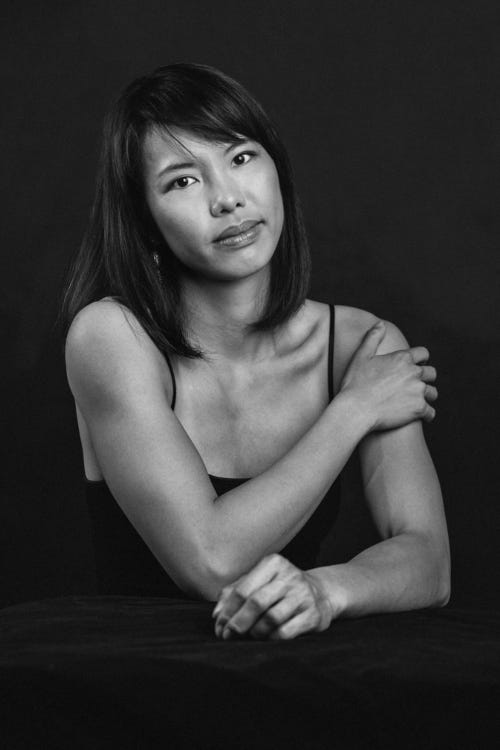
I am a Singaporean
Some of you may have heard
my story. You’re probably
expecting an article about how
choosing this career path has
been the riskiest thing I’ve
done to date — especially in
cosmopolitan, utilitarian,
capitalist Singapore.
But no. Not quite. I view my
career rather differently. Yes,
players struggle with funding,
sponsors, with the way people,
systems, and bureaucracies
tend to view us through a hard
dialectic of pure wins and
losses, criterion met or profits
gained. It is not easy to
navigate. But far from that,
opening myself up to this has
not been my biggest risk.
Instead, this journey has
opened me up, to feel.
Feel. That is the riskiest thing.
It is easy to misunderstand the
idea of ‘feel’, though. In our
society, we tend to prioritise
logic over feeling — the latter
oft caricaturised as a floozy,
nebulous, unreliable guide.
Having the propensity to ‘feel’
for something has, over time
in a tide of culturally
conservative norms, become a
sign of being ‘too emotional’.
In unspoken terms, it can be
seen as an underlying
indicator of intellectual
weakness, even effeminacy.
I suspect, though, that society
brushes one’s capacity to feel
with prejudice, because we’re
actually afraid of the power
true, honest, heartfelt feelings
can illicit in individuals. There
is a role that logic plays. But it
is and should not be one prized
higher than the importance
feel plays in decision making.
Whether in work or relation-
ships, I find we tend to stop
ourselves from truly thinking
about how we feel about
something. Or bite our tongues
from really expressing
ourselves because of the
possibility of rejection.
Similarly in relationships,
being honest, means being
vulnerable — and we often
shy from such chivalry
because you don’t know how
the other party will respond.
Simply put, you don’t know
where that feeling will take
you. So, you would rather not
risk it.
In tennis, it has been said a
normal individual will never
come close to experiencing the
depth and range of emotion
that a competitive player
experiences in a single match.
I’m not sure how true that is,
but it is true that what we feel
on court is cruelly intense —
and I think that comes with the
nature and sheer difficulty of
this sport.
Tennis is fitness and strength,
married with the need for high
degrees of agility, coordination
and flexibility. Your body is
constantly responding to a
moving ball, requiring you to
control three elements: vision,
speed and feel simultaneously.
Both technically and mentally,
it is about being hard and soft
at the same time. Calm but
fierce. Relaxed but intense.
But here is the trick: To be calm
you have to feel calm; to be
fierce, you have to feel fierce.
But what if you had to be both?
How do you deeply assume
both roles, and still operate
with peace within yourself?
When I practised this with my
coach in California, applying
the two concurrently got so
mentally and physically
intense, smashing my racquet
felt like the only way to quench
the fire in my head and the
burn in my lungs. A lot of
success in tennis boils down to
balancing the mental aspect of
the game — deeply feeling
intense emotions that come
out of a supposed failure or
success on court, and yet being
able to control them, in order
to move on and do the next
right thing. The only way to
harness your feelings, is if you
can practise patience and a
willingness to understand
yourself, first.
—
“It is depression!” He
exclaimed, his eyes widened
as his voice went a pitch
higher in protest. We sat at a
bar, soaked in the evening sun
in Kuala Lumpur, Malaysia
and I looked down at my
napkin at the table, the sides
of my mouth upturned as I
grudgingly accepted the
possibility.
“Well… I suppose it is.”
“Of course it is!” His protest,
again, rose strongly above the
music blare.
“It’s a very real feeling, you
know??”
Barely a few months ago, I had
just $1.87 in my bank account.
Despite my best efforts in
working tirelessly over 8
months with a potential
funding partner, I was told at
the very end that they I did
not meet their prerequisites
for support. Systems were yet
to be in place to seriously
consider cases like mine.
For some reason, when I got
the news, I cracked. It was
somewhere between feeling I
had been led along for 8
months, matched against a
real, deep need for funding
help, that things started
getting exponentially more
difficult. This KL friend too,
had once shared how he had
been brought down to RM4.32
in his bank account. It was one
of his most difficult seasons to
keep believing that things
would turn, and somehow, I
needed someone who could
understand. I confided in him
with downcast eyes that when
I cracked, for the next few
days, I could not stop crying.
I hated it. I hated this lack of
control. I hated feeling such
deep loneliness and
desperation — I could feel it
pulling me down and sticking
to my soul like septic glue. The
tears would come at will too.
Fast, strong, heavy, and on one
particular occasion it got so
bad, I had to park myself
underneath my block after
practice, to let everything out
because I didn’t want my
parents to see me like that.
These weren’t little sniffles
you could dab away with a
piece of tissue. These were
painful, gut wrenching,
soundless tears of deep
frustration.
When was good enough, ever
good enough to warrant help?
Or just a little faith?
—
Kevin Hart the comedian
recently shared on a radio
interview that he once
planned to be a stripper. He
was in college, money was dry,
and out of desperation he
started getting outfits and
planning an actual stripping
routine. As crazy as it was, it
took one of his buddies to
shake sense into him. “Yo,
what the hell you doing?
Stupid. You go out there and
you take your lumps!”
From that, he realised that it
is not bad to struggle. Human
beings have a tendency to
want a quick fix, an easier way
of escape. There is shame
attached to struggle. Shame
attached to sitting underneath
your HDB* void deck, bawling
your eyes out with snot
streaming down your nose.
What if a neighbour sees you?
What if someone takes your
picture? [ *HDB is Singapore’s
public housing board, Housing
and Development Board ]
As Hart says, “Go get your dumb
ass out there. Man, go struggle.”
And rightly so. The life lesson is
that there is no win in the quick
route. There is nothing wrong
with grinding. There’s nothing
wrong with struggling. There is
nothing wrong with taking the
longer route and getting your
hands dirty in the process.
Success is never a fixation on
instant gratification, nor on
keeping things neat, clean and
sanitised. With the dirt, comes
the lessons — and those are
the real gems.
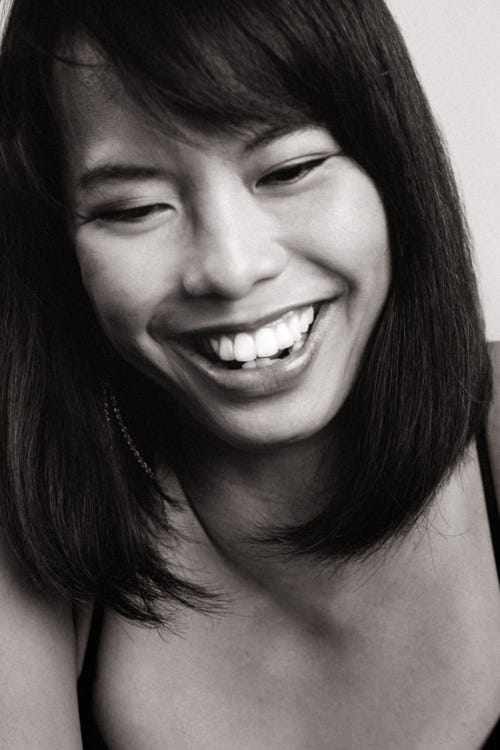
—
The path upward is never a
stagnant one, and neither is it
a shameful one. As painful and
as strong a marker that day
under my block served, I knew
that that was exactly where I
was supposed to be. I was
meant to feel the depth of
these feelings, to feel
frustration stilt the breath in
my lungs, and understand that
it was okay to be there and to
feel helpless. It is especially in
important moments like this
that we must take
responsibility to break out of
this cycle, and realise that
contrary to how depressed we
can feel, we are never alone.
When you cannot move, you
need to humble yourself and
send an SOS out, tapping on a
reservoir of love and care of
others to carry you forward.
Over the next few weeks, a
small group of 11 friends
banded together to send me to
the States to see my coach in
California. It was one of the
hardest things — sending that
SOS signal out for help — but
it was hard because it was a
matter of getting over my
insecurities, to choose to be
honest and vulnerable. The
first person I texted was our
Paralympic champ, Theresa
Goh.
“You are the first friend I am
sending this to.”
I typed, afraid and feeling deep embarrassment, as tears
welled in my eyes.
“But I’m going to try because I
really want to keep competing
and training.”
“Don’t cry, Sarah Pang.”
TG shot back.
“Because of the person and
kind of friend you are, you
will never have a shortage
of good people around you.”
—
And so because of these people
— these kind, good people — I
had access to see my coach
whom I had not seen for 5
months. Training sessions
were by no means easy, but
over three weeks, I felt like I
was slowly being put back
together from all the hurtful
things that had happened back
home. I stayed with a
wonderful host who loved me
with great food, heart-to-heart
conversations, a non-
judgemental acceptance of
who I was, and who I could
be. Bit by bit, I could feel hope
edging back into my heart.
Slowly but surely, over days, I
came back full circle to a
conviction that I could
contribute, that impossibles
were possibles, edged with a
belief that we need to do it
together.
Building great things, building
deep things, takes time —
because there will be trials
that test over and again, your
belief in something, just by
sheer extenuating
circumstances. But it is only
through that, only through
letting ourselves go through
those experiences, that we get
the chance to become tuned to
what DH Lawrence calls, is our
“higher emotional range.” Let
us not be afraid to feel.
Because that is the only way to
discover ourselves, and in so
knowing, find deeper things in
us that are built to be
unshakeable, in times of
shaking.
Image credits: Juliana Tan
Sarah Pang's story of gut-
wrenching lows
and
glorious highs ,
click here
Watch YouTube video here

No comments:
Post a Comment